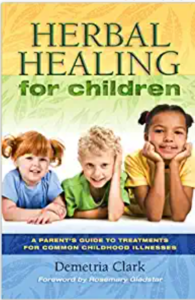Harnessing Nature’s Power: Antifungal Herbs for Natural Healing
Antifungal herbs stand out in natural remedies as potent allies against fungal infections both internally and externally. These powerful herbs can help combat yeast infections internally and conditions like tinea externally. Together, let’s explore some of nature’s most effective antifungal herbs and learn how to incorporate them into our healing routines.
Garlic (Allium sativum)
Thanks to compounds like allicin, garlic is renowned for its potent antifungal properties. Consuming raw garlic or garlic supplements can help combat fungal infections internally. Additionally, applying crushed garlic topically to affected areas can help address external fungal infections.
Oregano (Origanum vulgare)
Oregano contains carvacrol and thymol, two compounds known for their antifungal activity. Consuming oregano oil or adding fresh oregano to your meals can help fight fungal infections internally. Topical application of diluted oregano oil can also help address external fungal infections.
Tea Tree Oil (Melaleuca alternifolia)
Tea tree oil possesses powerful antifungal properties, making it a popular choice for treating fungal infections externally. Dilute tea tree oil with a carrier oil like coconut oil and apply it to affected areas to help combat fungal infections such as tinea.
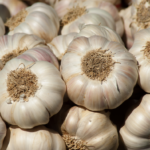
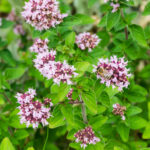
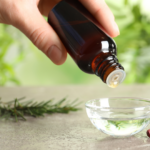
Coconut Oil (Cocos nucifera)
Coconut oil contains lauric acid, which exhibits antifungal properties. Consuming or applying it topically to affected areas can help inhibit the growth of fungi and promote healing.
Ginger (Zingiber officinale)
Ginger contains gingerol, a compound with antifungal properties. Incorporating fresh ginger into your diet or drinking ginger tea can help combat fungal infections internally. Additionally, applying crushed ginger to affected areas externally may relieve fungal infections.
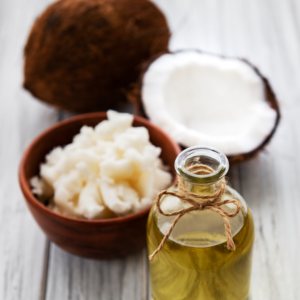
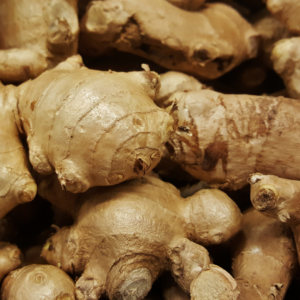
In addition to incorporating antifungal herbs into your routine. Try adopting a diet that supports immune health and can help combat fungal infections. Moreover, avoiding refined sugars, processed foods, and excessive carbohydrates can help prevent fungal overgrowth. Instead, focus on consuming plenty of fresh fruits and vegetables, lean proteins, and probiotic-rich foods like yogurt and kefir.
Here’s a simple herbal recipe to help combat fungal infections internally:
Antifungal Herbal Tea:
Ingredients:
- 1 teaspoon dried oregano
- 1 teaspoon dried ginger
- 1 teaspoon dried thyme
- 1 teaspoon dried rosemary
- 1 cup hot water
Instructions:
- Place the dried herbs in a cup.
- Pour hot water over the herbs.
- Cover and steep for 10-15 minutes.
- Strain the tea and drink it warm.
Incorporating antifungal herbs into your diet and skincare routine can provide natural relief. This can be from internal and external fungal infections. However, consult a healthcare professional for proper diagnosis and treatment if symptoms persist or worsen.
Disclaimer
Disclaimer Blog
The information presented on the Heart of Herbs Herbal School/Demetria Clark websites is for educational purposes only. Heart of Herbs Herbal School/Demetria Clark Education LLC makes neither medical claims nor intends to diagnose or treat medical conditions. Links to external sites are for informational purposes only. Heart of Herbs Herbal School/Demetria Clark neither endorses them nor is in any way responsible for their content. Readers must do their own research regarding the safety and usage of any herbs, recipes, or supplements.
Affiliate Disclosure
Some posts contain affiliate links. When you click on these and make a purchase the cost is the same for you, but we earn a small commission that helps me to provide scholarships to students. We only promote products that we know our clients have liked themselves.
Heart of Herbs Herbal School is a Amazon affiliate. As an Amazon Associate, we earn from qualifying purchases.
